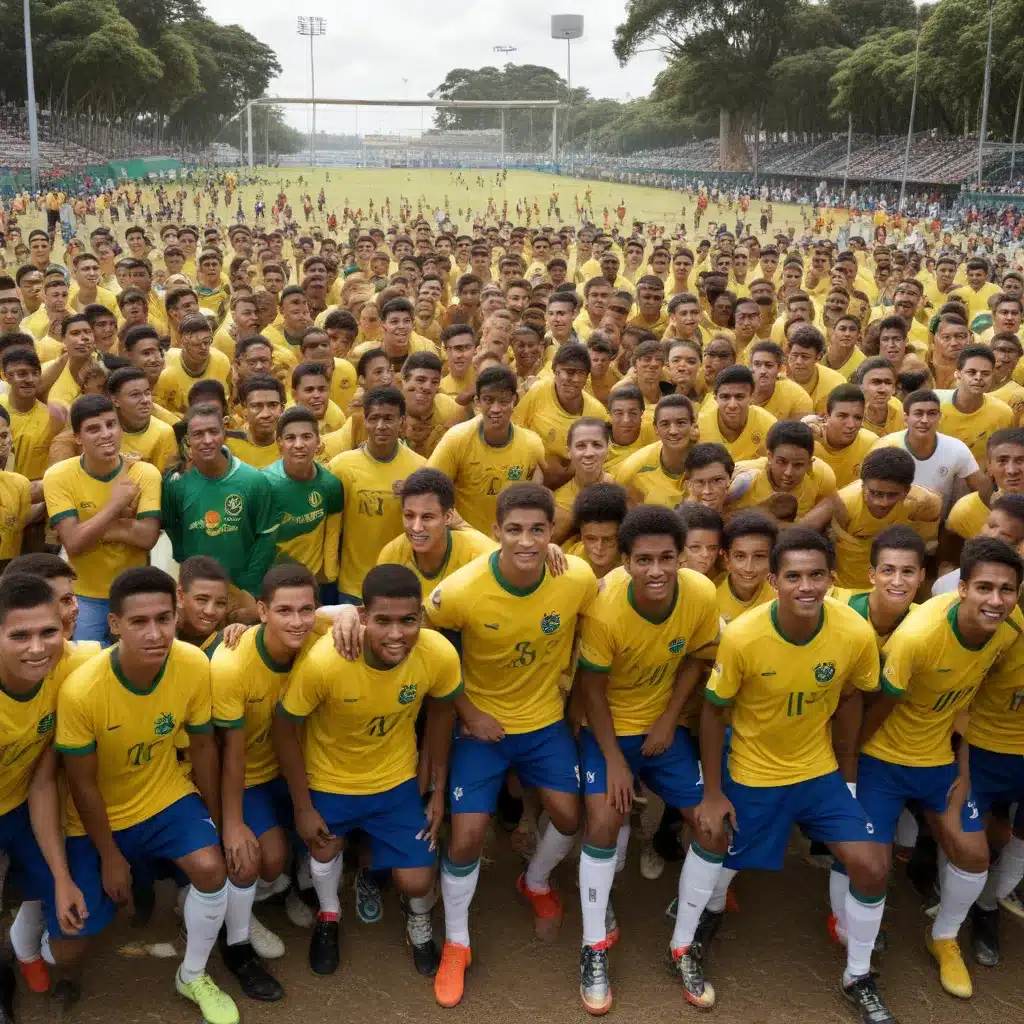
Uncovering the Role of Grassroots Development in Shaping Brazil’s State-Level Football Competitions
Grassroots Football Initiatives
Brazil’s football landscape is shaped by a rich tapestry of grassroots development programs that nurture the sport’s growth at the community level. From bustling favelas to remote rural towns, these initiatives provide crucial pathways for young Brazilians to hone their skills and find their passion for the beautiful game.
Community-based Football Programs are the lifeblood of Brazil’s footballing culture. Often run by dedicated volunteers and local organisations, these programs offer youngsters access to coaching, equipment, and competitive opportunities that may otherwise be out of reach. Programs like Gol de Letra and Bola Pra Frente have been instrumental in introducing the sport to underserved communities, fostering a sense of belonging and pride that extends far beyond the pitch.
Complementing these grassroots efforts are the Youth Football Academies that dot the Brazilian landscape. Renowned clubs like Fluminense, Corinthians, and Cruzeiro have built comprehensive youth development systems, scouring the country for the next generation of talent. These academies not only uncover raw talent but also instill the values of teamwork, discipline, and a deep appreciation for the sport’s heritage.
State-Level Football Competitions
Underpinning the grassroots development is the vibrant ecosystem of Brazilian State Championships (Campeonatos Estaduais). These state-level tournaments serve as a crucial bridge between community-based football and the upper echelons of the professional game.
The Campeonatos Estaduais have a long and storied history, dating back to the early 1900s. Each of Brazil’s 26 states (plus the Federal District) hosts its own championship, showcasing the unique football cultures and rivalries that have evolved across the country. From the Paulistão in São Paulo to the Carioca in Rio de Janeiro, these state-level competitions are a source of fierce pride and intense fan engagement.
Beyond the state-level tournaments, Regional Football Tournaments further enhance the grassroots development landscape. Events like the Copa do Nordeste and the Copa Verde bring together clubs from neighbouring states, fostering cross-regional rivalries and providing additional opportunities for emerging talents to shine.
The Influence of Grassroots Football
The impact of Brazil’s grassroots football initiatives on the state-level competitions is profound and multifaceted.
The Talent Identification and Recruitment process is heavily influenced by the country’s vibrant youth development programs. Scouts from professional clubs scour the grassroots landscape, unearthing raw talent and providing pathways for young players to ascend the footballing hierarchy. This symbiotic relationship between community-based programs and professional clubs has produced countless icons who have graced the global stage.
Equally significant is the Increased Participation and Engagement driven by grassroots initiatives. By making the sport accessible to underrepresented communities, these programs have expanded the pool of potential players, fostering a deep-rooted passion for the game that resonates across the state-level competitions.
Grassroots Contributions to Football Culture
Beyond the tangible impacts on player development and participation, grassroots football has also played a pivotal role in shaping Brazil’s distinctive football culture.
The community-based programs have Fostered Local Pride and Identity, with clubs and teams becoming a source of communal unity and representation. Fans passionately support their local sides, imbuing the state-level competitions with a palpable sense of regional identity and fierce loyalty.
Equally integral to this cultural tapestry is the Community Involvement in Football. From the dedicated volunteers who coach and manage grassroots initiatives to the legions of supporters who fill the stands, the sport is deeply woven into the fabric of Brazilian society. This grassroots engagement ensures that the state-level competitions remain a vibrant and authentic expression of the nation’s footballing heritage.
The Evolution of State-Level Football
The Campeonatos Estaduais have undergone a remarkable transformation in recent decades, mirroring the broader modernization of Brazilian football.
The Professionalization and Commercialization of state-level competitions have led to increased investment, improved infrastructure, and enhanced media coverage. Stadiums have been renovated, training facilities upgraded, and sponsorship deals have brought much-needed financial resources to clubs and organising bodies.
Alongside these structural changes, the Improved Infrastructure and Facilities have raised the overall quality of the state-level competitions. Pitches are better maintained, medical support is more comprehensive, and the overall match-day experience for players and fans has been elevated.
Challenges Facing State-Level Football
However, the evolution of state-level football in Brazil has not been without its challenges. Inequality and Regional Disparities remain a pressing concern, as the financial resources and development opportunities are often skewed towards the more affluent states and major metropolitan areas.
Equally crucial is the need to Balance Grassroots and Professional Interests. As the state-level competitions become increasingly commercialized, there is a risk of marginalizing the community-based initiatives that have been the lifeblood of Brazilian football. Striking a harmonious equilibrium between grassroots development and professional advancement remains an ongoing challenge for the sport’s stakeholders.
The Future of Grassroots Football in Brazil
As Brazil’s football landscape continues to evolve, the role of grassroots development will be crucial in shaping the sport’s future trajectory.
Sustainable Development Strategies that empower community-driven initiatives and foster public-private partnerships will be essential. Programs that provide holistic support, from coaching and infrastructure to education and social services, can ensure that the grassroots game remains a vibrant and inclusive space for all Brazilians.
Ultimately, the symbiotic relationship between Grassroots Football and National Success will be a key driver of Brazil’s continued dominance on the global stage. By nurturing talent pipelines, instilling core values, and maintaining a deep connection to the sport’s cultural heritage, the grassroots game will continue to be the wellspring from which Brazil’s football legends emerge.
As the world’s football enthusiasts turn their gaze towards Brazil, the country’s unwavering commitment to grassroots development will undoubtedly play a pivotal role in shaping the future of the beautiful game.

